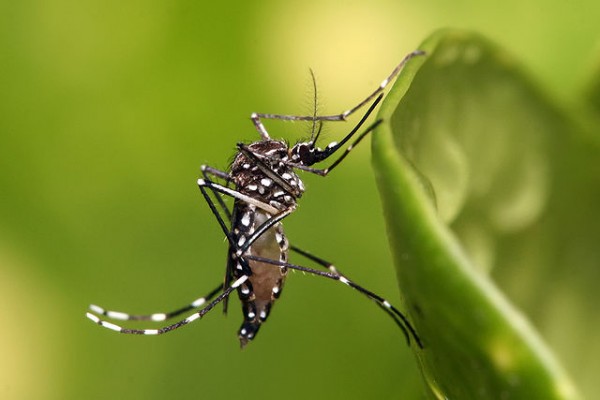Some Mosquito-Borne Diseases Expected to Rise, Stanford Researchers Predict

Aedes aegypti is a daytime-biting mosquito that can spread a range of really disturbing diseases like the Rift Valley Fever, Zika, chikungunya, and dengue, among others.
Not all mosquitoes are created equal. According to experts, different species of these flying pests multiply at various ranges of temperature and transfer different diseases.
From this basis, a study conducted by a team of Stanford University researchers, for the first time, forecasts how malaria, "When and wherein Sub-Saharan Africa" will retreat, as other mosquito-borne diseases like dengue fever for one, will rise radically.
The article published in Lancet Plenary Health on September 9, 2020, cautions of disaster in public health if there is a failure by the region to complement its concentration in malaria to include approaches tailored to other considered illnesses air-borne.
According to the study lead author Erin Mordecai, who's also a biologist at Stanford University, "Climate change will arrange the infectious disease's landscape."
Mordecai also added that chikungunya and dengue outbreaks as "recently seen in East Africa" are just turning out to be more likely "across much of the continent," and he emphasized the "need to be ready for this emerging threat."
ALSO READ: First 2 Deaths of 2020 Due To West Nile Virus Reported in Dallas County
The Daytime- and Nighttime-Biting Mosquitoes
Anopheles gambiae, a nighttime-biting mosquito, transfers malaria, an illness that impacts over 200 million people in Sub-Saharan Africa, reportedly and claimed the lives of over 400,000 people there two years ago.
For years, according to reports, public health initiatives in the region have attempted to combat the plague using "insecticide-treated bed nets and indoor spraying," to name two.
However, these malaria-focused control tactics are just minimal to fight against Aedes aegypti, a daytime-biting mosquito, which can spread a range of really disturbing diseases like the Rift Valley Fever, Zika, chikungunya, and dengue, among others.
The research also indicated that "growing urbanization has extended the range of Aedes aegypti by broadening its desired breeding grounds like discarded tires, bans and buckets, human-made containers and water jugs, among others.
On the contrary, mosquitoes that transmit malaria are said to breed in pools of water that naturally occur more typically in rural places.
DON'T MISS THIS: UK Might Roll Out Antibody Tests With at Least 98% Accuracy by the End of the Year
Temperatures Matter
Mordecai and his team's previous research found a link between the temperature and health of a person. Specifically, the study's lead author said, "Warmer temperatures increase spread of vector-borne disease" up to an optimal temperature or what they described as "turn-over point," above which the spread slows.
Different mosquitoes, researchers pointed out, as they carry various illnesses, "are adapting to varying temperatures.
They also indicated that Malaria is most possible to transmit at 25°C while dengue danger is recorded highest at 29°C.
Consequently, a warming globe means more danger of dengue. According to the World Health Organization, 2019 was reported as the worst year recorded for the virus.
At the time of the virus, cases were recorded and reported in each region, including some nations that never had any dengue case on record, WHO said.
Lack of Public Awareness
The study authors suggest that a lack of public awareness and knowledge of "Aedes aegypti mosquito ecology and risk exposure" increases the likeliness of getting mosquito-borne illnesses aside from malaria, while these regions' health system several such cases because of a lack of testing and diagnosis, or being misdiagnosed with malaria.
According to Stanford Medical School's Desiree LaBeaud, also the senior study author, it is essential to "focus on controlling mosquitoes" that transmit viruses like dengue as there are no particular medical treatments for these illnesses.
On top of that, LaBeaud added, a switch from malaria to dengue may overpower health systems as these illnesses introduced new populations frequently result in large outbreaks.
IN CASE YOU MISSED THIS: Tricare Issues an Apology Statement After Telling 600k Beneficiaries They've Had COVID-19.
Check out more news and information on the Mosquito-Borne Diseases on MD News Daily.
Sep 10, 2020 08:20 AM EDT





